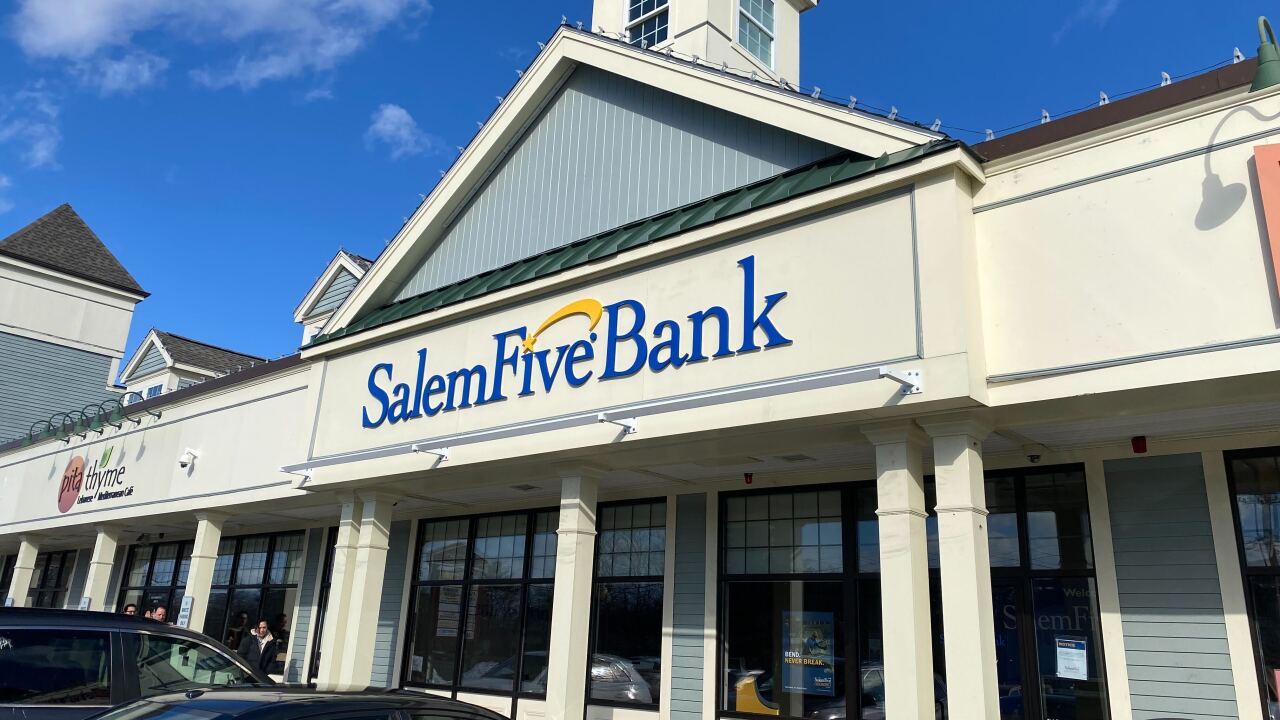-
Bond Street announced Tuesday it would acquire Atlantic Coast Financial for roughly $13 million in cash, but 40% of the consideration is being set aside to handle any potential shareholder suits.
February 26 -
Bond Street Holdings has agreed to pay a premium of nearly 50% for the struggling Atlantic Coast, the companies announced Tuesday. Atlantic Coast announced it was exploring the possibility of a merger more than a year ago.
February 26 -
Move over, Wintrust. MB is poised to end its three-year hiatus from dealmaking.
February 13 -
Premier American Bank has become the most aggressive failed-bank buyer in Florida, distinguishing itself from the state's other private investor-backed groups by sticking to deals close to home.
May 9 -
Bond Street Holdings Inc., the most active acquirer of failed banks in Florida, is looking to raise more money to buy even more banks.
May 17

Sometimes you just need a moment's rest before pounding the pavement again.
Bond Street Holdings in Weston, Fla., took a 19-month pause after gathering up failed banks at a breakneck pace. Rested and ready to go, it announced late last month
The $3.2 billion-asset Bond Street shows how ambitious banks can use an absence from the negotiating table to get their houses in order.
It started with a bang. Bond Street was one of a handful of firms that formed after the financial crisis, armed with a boatload of cash to buy troubled banks. It raised $740 million in the last few years and acquired eight failed banks from the Federal Deposit Insurance Corp. in 2010 and 2011.
But "we needed to complete the integrations, get common branding and common procedures to have one fully integrated bank," said Kent Ellert, the chief executive and president of Florida Community Bank, Bond Street's banking unit, which takes its name from the second bank it acquired.
Integration is always important in acquisitions, but observers say it is more so in dealing with failed banks given their inherent dysfunction.
"When you do eight FDIC deals in a year and a half and you started at zero, it is a challenge," says Randy Dennis, president of DD&F Consulting in Little Rock, Ark., which has been one of the most active advisors of failed bank transactions in the last few years. "Good for them for taking a pause to put that many systems on to one and getting all the people in place."
Florida Community is joined by MB Financial (MBFI) in Chicago in striking several deals with the FDIC before taking a long break to regroup.
Regulators have grown increasingly focused on how well acquirers are absorbing their additions, observers say.
"Regulators are more interested by acquirers' ability to execute on deals," says Paul Legere, a principal with Deloitte Consulting and the global financial services leader for its M&A and restructuring team. "They see it as a critical underpinning of their ability to deliver services to customers in a risk-managed way. They want to know acquisitions are going to be planned with discipline and rigor."
Florida Community declined to comment when asked if regulators played a role in its decision to back away. It doesn't discuss regulatory matters, a spokesman said.
Its slowdown coincided with a cooling of the failure market. Since Bond Street's last acquisition with the FDIC, a deal for First Peoples Bank in Port St. Lucie in July 2011, 14 banks in Florida have failed.
"The closure process at that point slowed dramatically so we moved forward to digest what we had acquired," Ellert says.
It did more than stand still.
Bond Street explored an
It also expanded loans $900 million in the last two years, Ellert says. Organic growth was always part of the formula, he said.
"When we started in late 2009, we really had a vision of building an independent bank," he says. "We've hired several hundred seasoned bankers to build this franchise into a strong commercial bank serving the broader middle market."
Serial failed-bank acquirers have experienced a noticeable decline in loans, as high concentrations of problem loans are worked out.
Florida Community's loan portfolio was $1.16 billion at the end of the third quarter of 2011, when it did its last deal, according to FDIC data. That figure included $232.9 million in commercial and industrial loans.
At Dec. 31, 2012, the loan portfolio was $1.34 billion, with $329 million in C&I loans.
Bond Street entered several of the state's largest business centers, including the major cities of south Florida, the Gulf Coast and Orlando, through its deals. The Atlantic Coast Financial deal will give the bank nearly $4 billion in assets and an entrée into Jacksonville.
"We are really excited about the Atlantic Coast deal because this takes us into northeast Florida and southeast Georgia," Ellert says. "From a commercial banking standpoint, Jacksonville is the second-largest market in the state."
It is aiming for assets of $5 billion by yearend, Ellert says. That will be accomplished through additional organic growth as well as deals for open banks and failures.
"We view ourselves as a skilled and friendly acquirer…and we continue to have significant excess capital," Ellert says. "We are very active in looking at other opportunities."




